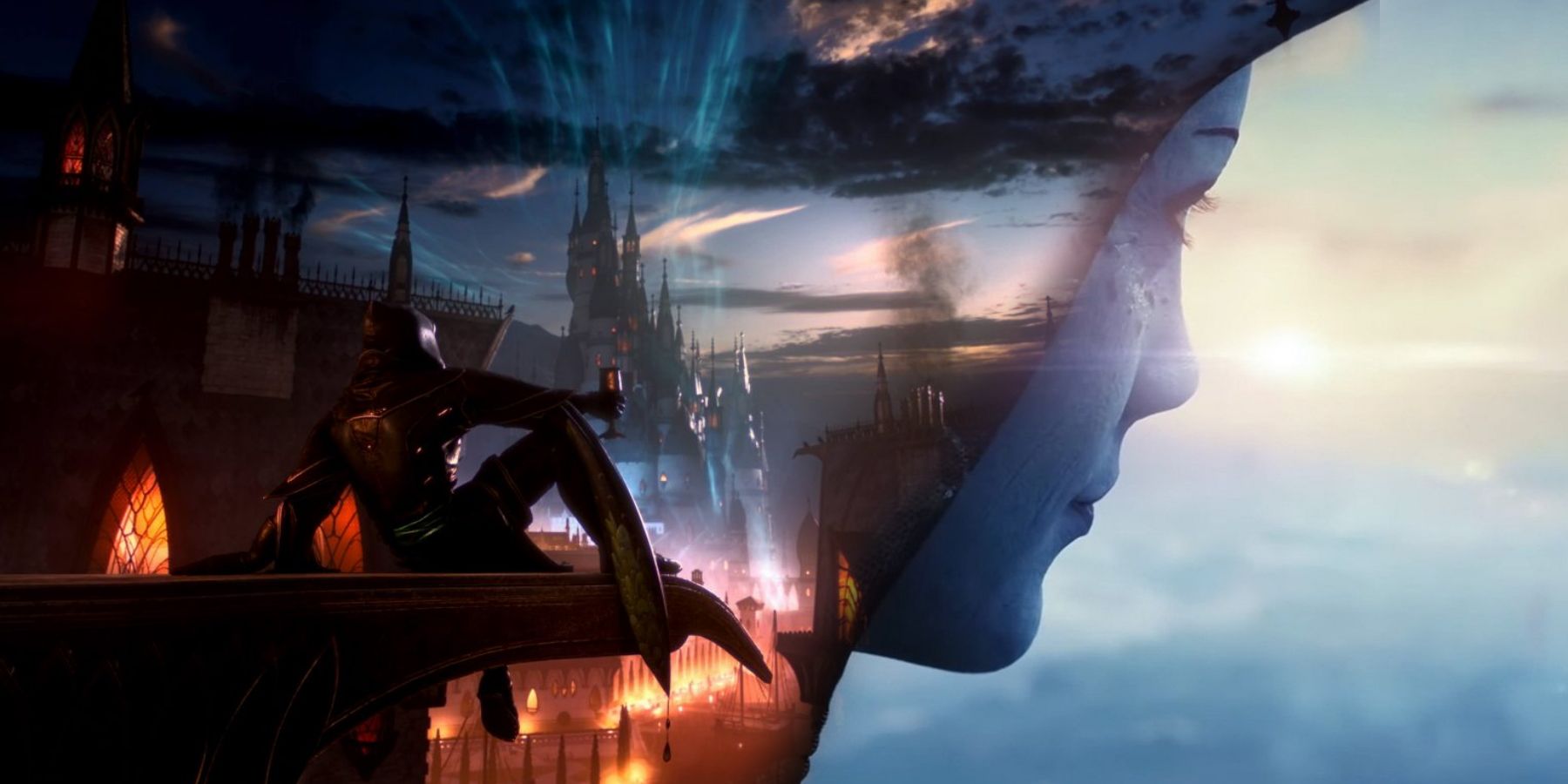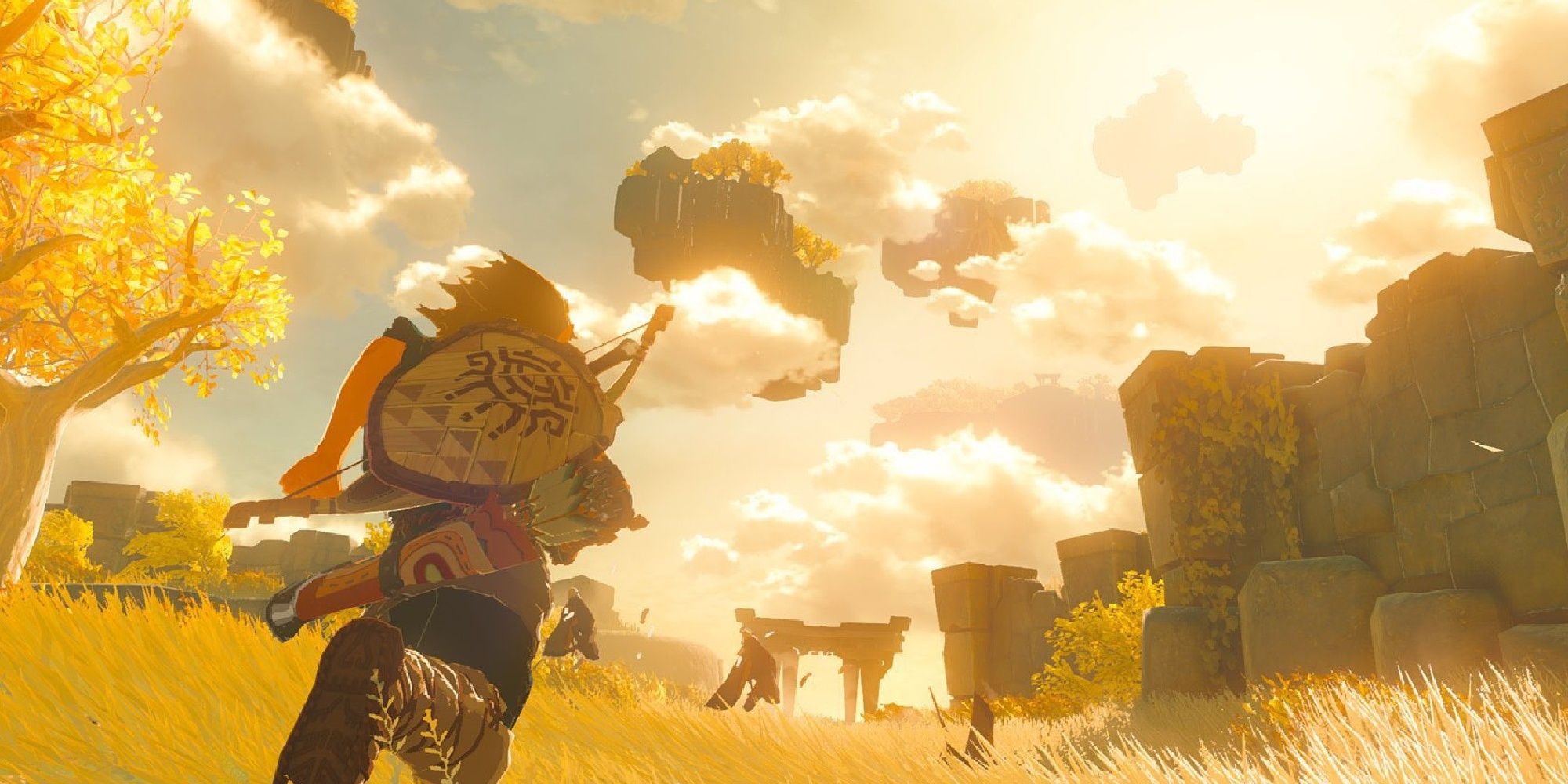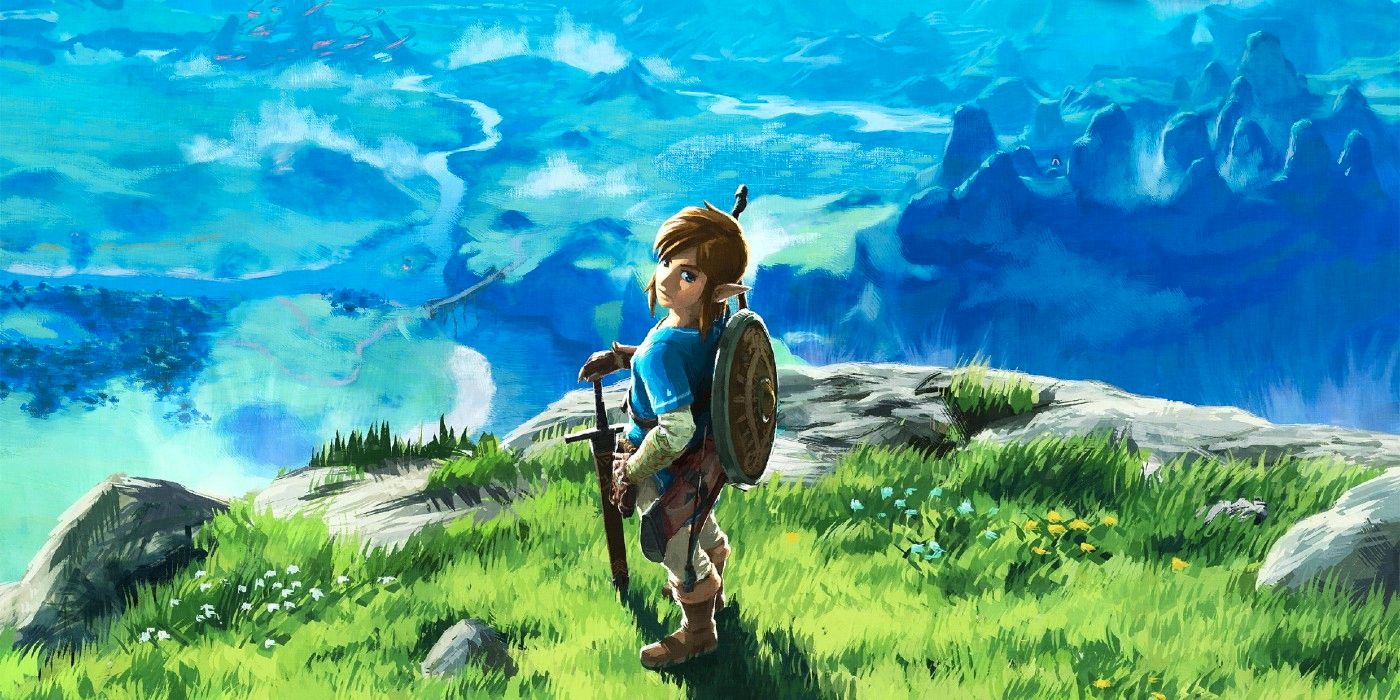There are plenty of questions up in the air regarding The Legend of Zelda: Breath of the Wild 2. Nintendo has kept a lot of details close to the chest about this upcoming sequel, including Breath of the Wild 2's official title, in order to avoid spoilers. However, even the details that have been revealed via its trailers at E3 2019 and 2021 leave much of the game open to interpretation. One big question is which elements from the largely open-ended Breath of the Wild will be considered canon.
A major selling point for Breath of the Wild is its freedom of exploration; players can run straight to the final boss after completing the Great Plateau tutorial, circumventing an open world full of plot-progressing content and side quests. Yet the sequel's trailers imply certain "optional" quests are now canon, as for example Link is seen wielding the Master Sword that has to be discovered in Hyrule's Lost Woods. Still, there are ways Nintendo could adhere to the first game's freedom and make every choice canon, notably by stealing from the playbook of developers such as BioWare and CD Projekt Red.
RELATED: Should Zelda: Breath of the Wild 2 Give Link a Clean Slate
Save Data Transfer and Episodic Games

Before the misfire that was Anthem, developer BioWare was primarily known for two series: Mass Effect and Dragon Age. Both share a similar conceit of giving players a wide range of choices that can be carried forward into future games, thus ensuring no two players' experiences are likely the same. Across the original three Mass Effect games, recently released together as Mass Effect: Legendary Edition, players can retain the same Captain Shepard, their relationships with crewmates aboard the Normandy, and even plot-altering events such as major character deaths.
Every decision has ramifications that are accounted for by each game down the line, which is an impressive feat of video game writing and engineering. However, as unwieldy as the idea may seem, BioWare is not the only developer to try it. CD Projekt Red lets players transfer save data through The Witcher 3: Wild Hunt, once again ensuring decisions made by each player's take on Geralt of Rivia have effects down the line.
One more common example of such save data transfer comes via episodic games. Developer Telltale became a household name following the release of The Walking Dead in 2012. Ultimately four "seasons" of the game released through 2019, each containing multiple chapters of an overarching point-and-click adventure. Decisions like who a player trusts with certain information or which characters they let die are "remembered" by others, fueling a formula that inspired plenty more Telltale projects and others such as Dontnod Entertainment's Life is Strange.
How Breath of the Wild 2 Can Utilize Save Data Transfer

Despite The Legend of Zelda being a narrative-driven adventure game series, there is rarely a direct throughline for different games. An overall Zelda timeline exists that places each version of Link at different points along the same branching continuity, yet a given Link typically doesn't carry over from one game to the next. That said, there are exceptions such as Ocarina of Time's Link returning in Majora's Mask - and later becoming the Hero's Shade that teaches Twilight Princess' Link a bevy of new techniques.
RELATED: Mass Effect 2's Suicide Mission is a Master Class in Companion-Based Video Games
Breath of the Wild 2 finds itself in a unique position. The same Link and Zelda from Breath of the Wild are together again shortly after the events of the first game, and they explore the same Hyrule affected by a new dark force that creates floating islands and other unique obstacles. However, as previously mentioned, Breath of the Wild was built around the kind of freedom that does not ensure every player saw the same things on their first go-around, making it a vastly different kind of continuity than Metroid's 2D platformers.
Adopting the same kind of save transfer system as in games like Mass Effect and The Witcher is a lot of work, but it's easy to see how that work would be appreciated by fans. On one hand, it would help explain why Breath of the Wild's sequel has taken so long to develop despite reusing many elements (COVID-19 restrictions aside). On the other, it means everyone's decisions would have an effect to justify playing the original game before Breath of the Wild 2.

Though this isn't a common strategy utilized by Nintendo, it wouldn't be entirely unique - including within The Legend of Zelda franchise. The Legend of Zelda: Oracle of Ages and Oracle of Seasons, developed by Capcom subsidiary Flagship and released on Game Boy Color in 2001, are technically two halves of the same game. After completing one of the top-down Zelda adventures, players can transfer data to the other using a password or Link Cable to see an alternate version of events reflecting one's journey thus far.
Breath of the Wild 2 can make far better use of this idea by nature of its nonlinear story. The Master Sword is a perfect example: While Nintendo shows Link wielding this legendary blade in trailers, perhaps there are alternate versions of the same cutscene to reflect save data in which Link skipped out. Alternatively, there could be lines of dialogue that change to reflect whether Link got the sword during or after Breath of the Wild, though this is a less exciting option given the prior indicates Lost Woods will still be an important locale.
Plenty of other player choices could similarly change Hyrule in the sequel. If Link skipped a Divine Beast, he will not have met any of the citizens in their respective realm, and thus they might be indifferent toward him compared to a varient where players 100 percent completed the first game. It doesn't seem likely Nintendo will go through the effort of making this branching narrative web possible, but if Mass Effect can accomplish it and become a critical darling there's certainly potential to be mined.
The Legend of Zelda: Breath of the Wild 2 releases in 2022 for the Nintendo Switch.
MORE: Zelda: Breath of the Wild 2 Needs to Address the Champions' Descendants

